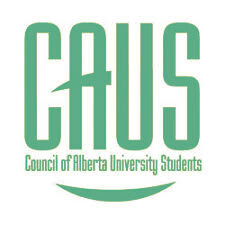CAUS Releases Campus Sexual Violence White Paper
Edmonton, AB - Today, the Council of Alberta University Students (CAUS) released an in-depth research paper exploring campus sexual violence at Alberta’s post-secondary institutions, the first of its kind in Alberta to be written by student leaders that is research-intensive and focuses on recommendations for the Government of Alberta’s consideration.
“Acts of sexual violence are unfortunately present on every campus in Alberta,” said Sadiya Nazir, Chair of CAUS. “Countering and responding to campus sexual violence requires the Government of Alberta to play a critical role. Properly responding to and addressing this issue will require a comprehensive and holistic approach of oversight, education, and support.”
The paper calls on the Government of Alberta to better track instances of campus sexual violence, ensure institutions have robust policies and work with institutions to fund campus sexual violence services as well as programs addressing preventative measures. CAUS also calls on the government to fund the development of online-based training that institutions can use as a baseline to educate their campus staff and faculty on effective and supportive responses to sexual violence disclosures.
“This paper is an authentic representation of what is happening in the province of Alberta,” stated Bailey Harray, Vice-Chair of CAUS. “We cannot be blind to the facts and as a province, we must act quickly to address sexual violence on post-secondary campuses while keeping those victimized by sexual violence at the forefront of the discussion.”
CAUS represents over 100,000 undergraduate students from the University of Alberta, the University of Calgary, the University of Lethbridge, Mount Royal University, and MacEwan University.
- 30 -
Media Contact
Jon Mastel, ED
Council of Alberta University Students
780-297-4531
BACKGROUND:
The paper calls on the Government of Alberta to:
assess and measure the prevalence of campus sexual violence in Alberta by developing and administering a yearly, institution-specific student survey, with the provision of grant funding linked to the successful roll-out of the survey.
ensure that all institutions have robust sexual violence policies and procedures by creating a provincial framework in collaboration with campus sexual violence specialists, student representatives, post-secondary institutions, and other key stakeholders.
allocate consistent and adequate funding towards efforts focused specifically on training and prevention of sexual violence on Alberta’s campuses.
work with individual post-secondary institutions and commit to consistent and sufficient funding for the most appropriate support services dedicated to anyone affected by campus sexual violence.
fund the development of online-based training that institutions can use as a baseline to educate their campus staff and faculty on effective and supportive responses to sexual violence disclosures.
Key Facts
Sexual violence is an umbrella term that refers to sexual acts committed against a person and is marked by (Basile et al., 2014; Krug et al., 2002):
The absence of consent: A person who has the legal, physical or cognitive ability to consent does not approve to engage in a sexual act
Inability to consent: Approval is not possible due to the person’s state (e.g. age, disability, lack of consciousness, or intoxication)
When refusal cannot be expressed due to, but not limited to, psychological intimidation, power differential, or use and threat of physical force
In 2014, Statistics Canada indicated that of the 636,000 cases of self-reported sexual assault incidents, 87% were committed against women.
Nearly 47% of these involved women between the ages of 15-24 (Conroy & Cotter, 2017).
Obtaining a complete picture of the issue on Canadian PSIs can prove challenging given the lack of public data and the absence of unified reporting mechanisms across institutions.
The 2014 Statistics Canada survey suggested that 83% of sexual assault incidents are not reported to the police (Conroy & Cotter, 2017).
Government of Ontario’s 2018 Student Voices on 13 Sexual Violence Survey unveiled that 63% of Ontario university student respondents had experienced some form of sexual harassment (CCI Research, 2019).
Indigenous women bear some of the highest risks of victimization; the rate of sexual assault among this group is approximately three times higher than non-Indigenous women (Conroy & Cotter, 2014).
